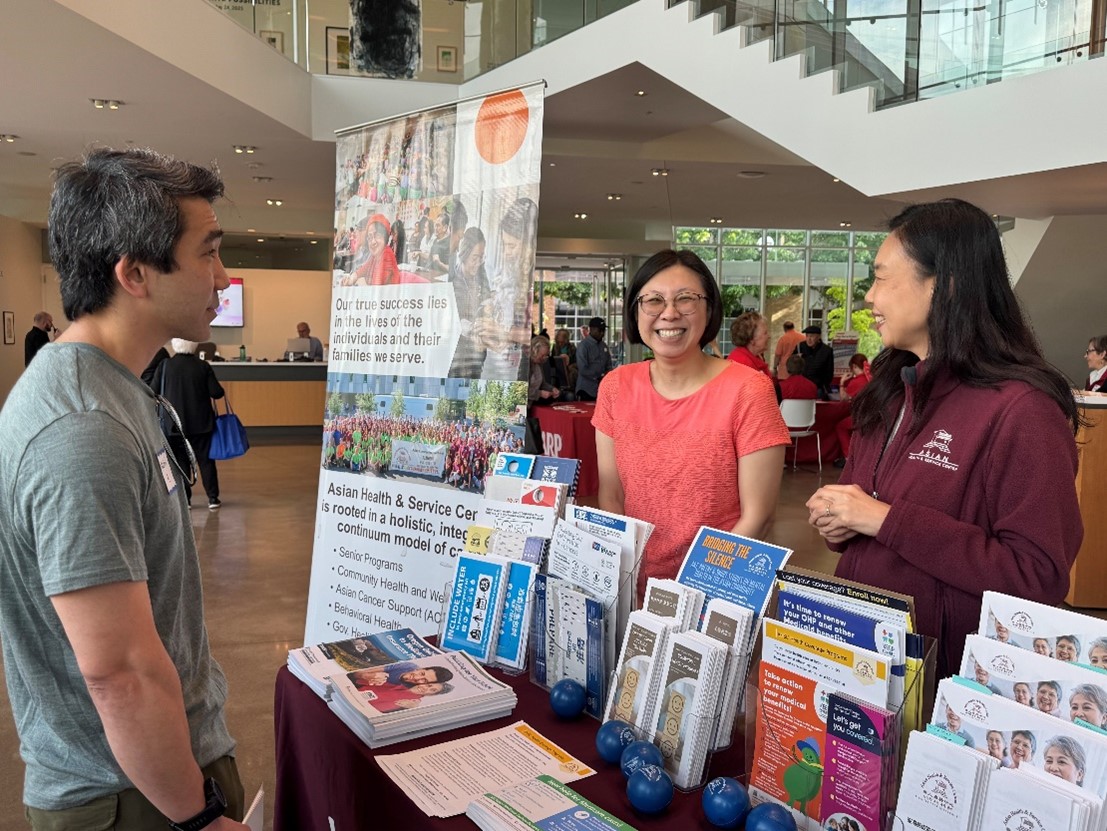AARP Hearing Center

As Asian American Pacific Islander Heritage Month comes to an end, we take a moment to honor the resilience, strength, and cultural richness of the Asian American and Pacific Islander (AAPI) community—especially its elders. At AARP, supporting the aging AAPI population is not a seasonal effort, but a year-round commitment rooted in equity, access, and a deep understanding of culture.
Asian Americans represent one of the most rapidly expanding racial groups in the U.S., a pattern that is present in Oregon as well. As of 2023, Asian Americans made up approximately 7% of Oregon’s workforce, up from 5% in 2013. In recent years, Oregon has seen significant growth in the Asian American population, surpassing Hispanics as the state's fastest-growing demographic.

This growth underscores the importance of culturally responsive engagement. For Daphne Kwok, Vice President, Diversity, Equity & Inclusion, Asian American & Pacific Islander Audience Strategy at AARP, this work is personal and persistent. “We’re not just another resource provider,” she says. “We’re working to meet people where they are—culturally, linguistically, and emotionally.”
Bandana Shrestha, AARP Oregon State Director, is proud of the organization’s connection with AAPI communities across the state. “Our work is about fostering trust and building lasting relationships,” she says. “We’re committed to ensuring that AAPI older adults and their families feel seen, heard, and supported—whether it’s through resources, advocacy, or culturally relevant programming. This is not just outreach, it is a promise to uplift voices in Oregon communities.”
Caregiving
One of the most pressing challenges in AAPI communities is caregiving—a role deeply embedded in cultural tradition but rarely named. “In many Asian cultures, caregiving is seen as a family duty, not a role,” Kwok explains. “But if we don’t identify as caregivers, we may never seek out the support that exists.”
That’s why AARP has prioritized culturally relevant caregiving resources. The Prepare to Care guide, for example, has been translated into Chinese and adapted to reflect Asian cultural practices—from the layout of multigenerational homes to the everyday rituals.
Partnering with public figures like MSNBC anchor Richard Lui, AARP has helped elevate the visibility of male caregivers, challenging stereotypes and encouraging conversations. Lui’s story—caring for his father—has resonated deeply, especially among younger men who come to realize they, too, are caregivers.
Language
For many older adults in the AAPI community, language remains a barrier to access. “You have to do research in the language to truly understand the community,” Kwok notes. That understanding has led to groundbreaking efforts, such as the creation of the first Asian American Research Survey Pool in collaboration with the University of Chicago NORC, featuring surveys conducted in Mandarin, Cantonese, Vietnamese, and Korean.
AARP has also worked closely with ethnic media outlets, using language outreach to distribute critical information, especially during crises like the COVID-19 pandemic, when communication was essential.
Fighting Fraud
Fraud disproportionately impacts older adults, and AAPI elders are no exception. AARP’s Fraud Watch Network has partnered with Asian American experts to create culturally relevant, multilingual fraud prevention materials. These efforts have led to tailored outreach campaigns and surveys specifically designed for the AAPI community, with new research slated to be released later this year.
Expanding AAPI Work
In Oregon, AARP will continue to collaborate with local organizations like the Asian Health & Service Center (AHSC), the Asian Pacific American Network of Oregon (APANO), and the Immigrant & Refugee Community Organization (IRCO) to advocate for older adults.
Kwok’s team has expanded its efforts to include the South Asian community, the fastest-growing subgroup of the AAPI population. Through a new docuseries, AARP is sharing stories around caregiving and social isolation in Indian and Pakistani communities, helping individuals realize they’re not alone.
The journey doesn’t end here. AARP is deepening its work in brain health, dementia education, and intergenerational dialogue, hosting events and producing materials that encourage early conversations about aging, care, and support.
Continuing the Conversation
As we reflect on AAPI Heritage Month, let’s not leave these conversations behind. Supporting AAPI elders means recognizing their unique experiences and building systems that reflect their cultural needs. At AARP, we’re proud to stand beside our AAPI community members—not just in May, but every month of the year.
Learn More
Explore caregiving resources at aarp.org/caregiving
Find Oregon-specific caregiving resources at aarp.org/ORcares
For AAPI-specific support, visit aarp.org/aapi
Watch Richard Lui’s story, a film supported by AARP, skyblossom.com/about































































